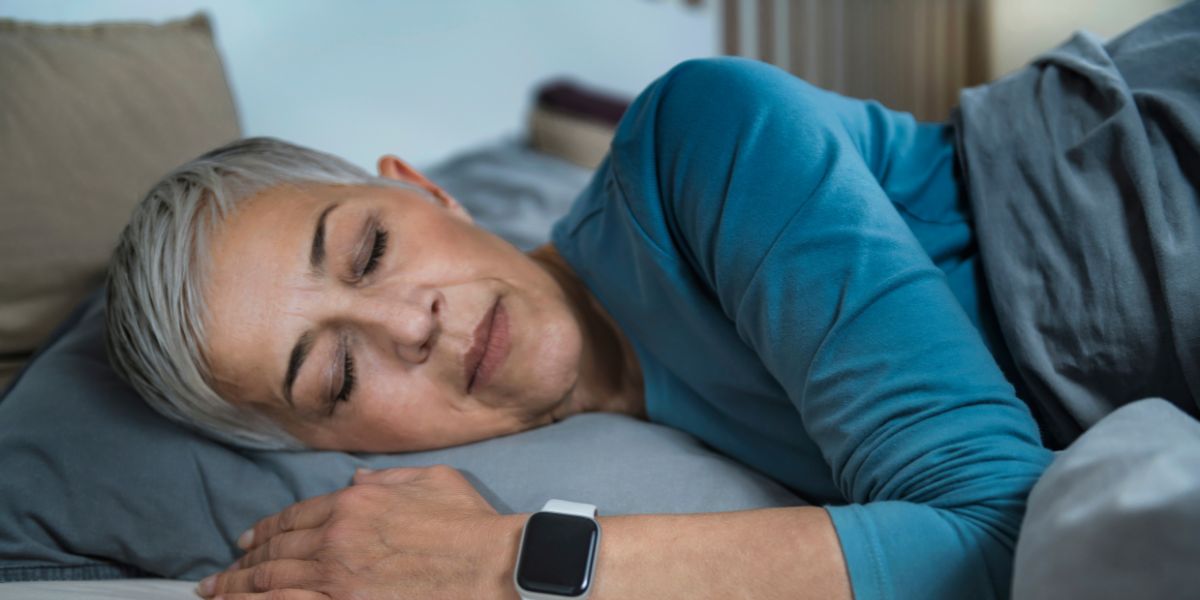
Going Through Menopause? How Hormone Therapy Can Improve Your Sleep
Menopause is a natural part of aging, but that doesn’t make it any easier to deal with. Hot flashes, mood swings, and a whole host of other symptoms can make your life difficult.
Sleep problems are also incredibly common during this time, making it feel like you’re never getting a good night’s rest. Thankfully, there are solutions—and hormone therapy might be one of them.
Sleep Problems During Menopause
As progesterone levels decline and estrogen and progesterone become imbalanced, your body’s internal thermostat gets a bit unbalanced. This is what brings on hot flashes and night sweats, making you wake up feeling drenched and uncomfortable. Plus, hormonal shifts in general can disrupt your sleep cycle.
Chronic sleep problems can have serious effects on your overall health. They can increase your risk for things like mood issues, heart problems, and other health challenges down the line.
Hormone Therapy for Menopausal Sleep Disturbances
Hormone therapy can be a huge help for managing frustrating menopause symptoms. The idea behind it is simple: by replacing some of the progesterone and estrogen that your body is no longer producing, hormone therapy can help manage hot flashes, night sweats, and sleeplessness.
Menopause: The Journal of the North American Menopause Society has reported that even low-dose hormone therapy can significantly improve sleep quality in women going through menopause. Researchers observed that over four years, women on hormone therapy experienced about double the improvement in sleep quality compared to those who didn’t receive hormone treatment.
There are a few different ways you can take hormone therapy. Your doctor may recommend an oral progesterone at bedtime or even a topical. The best option for you will depend on your individual needs and preferences.
Hormone therapy isn’t the right choice for everyone. Your doctor can help you weigh the potential benefits and risks based on your individual health history and needs. Factors like your age, time since menopause, and your family medical history will all play into whether hormone therapy is a safe and appropriate option for you.
If you’re struggling with persistent sleep issues during menopause, talking to your doctor is the most important step. The more your healthcare team knows about what you’re experiencing, the better they can create a treatment plan tailored specifically to your needs. In addition, determining the root cause of your sleep problems—whether they’re directly hormonal or due to a mix of factors—will help ensure you’re on the right track to sleep soundly again.
Supplements for Sleep
While hormone therapy can be very effective, it’s not the only option for managing sleep issues during menopause. Certain supplements can play a supportive role in your sleep health.
Magnesium
This essential mineral has a calming effect on the body and is crucial for healthy muscle and nerve function. Magnesium supplements may ease cramps and promote relaxation, contributing to better quality of sleep.
L-theanine
Derived from green tea, this amino acid is known for its ability to promote a state of calm and focus without causing drowsiness. This makes L-theanine a great choice if anxiety is a factor in your sleep issues.
GOLI Dreamy Sleep Gummies
These gummies combine sleep-supporting melatonin with calming lemon balm, magnesium for muscle relaxation, and vitamin D for immune support.
HUM Fan ClubTM
Designed specifically for perimenopause and menopause, Fan Club combines Siberian rhubarb extract (supported by clinical studies to reduce hot flashes and night sweats), probiotics for mood and stress management, and antioxidant-rich grape seed extract.
HUM Beauty zzZzTM
Beauty zzZz focuses on melatonin to help you fall asleep more easily. Vitamin B6 and calcium are added to potentially support a healthy sleep cycle and improve sleep quality overall.
Remember that while supplements can be helpful, it’s always wise to talk to your doctor first. This is especially important if you take other medications or have underlying health conditions. Your doctor can help you find the safest and most effective supplements to complement your overall treatment plan.
Get Your Sleep Back on Track at Cornerstone Pharmacy & Compounding
Sleep troubles during menopause can feel incredibly frustrating, but solutions are out there. Hormone therapy has been proven to be highly effective in managing hot flashes and night sweats and directly improving sleep quality.
Your doctor is your best ally when navigating these menopausal changes. They can help you determine if hormone therapy is right for you and discuss all your options. Supplements may also offer additional support, but consulting your doctor first is key.
If your life is being disrupted by sleepless nights, don’t hesitate to reach out to Cornerstone Pharmacy & Compounding. Our team is here to offer guidance and personalized recommendations for managing your menopause symptoms, including getting your sleep back on track.

